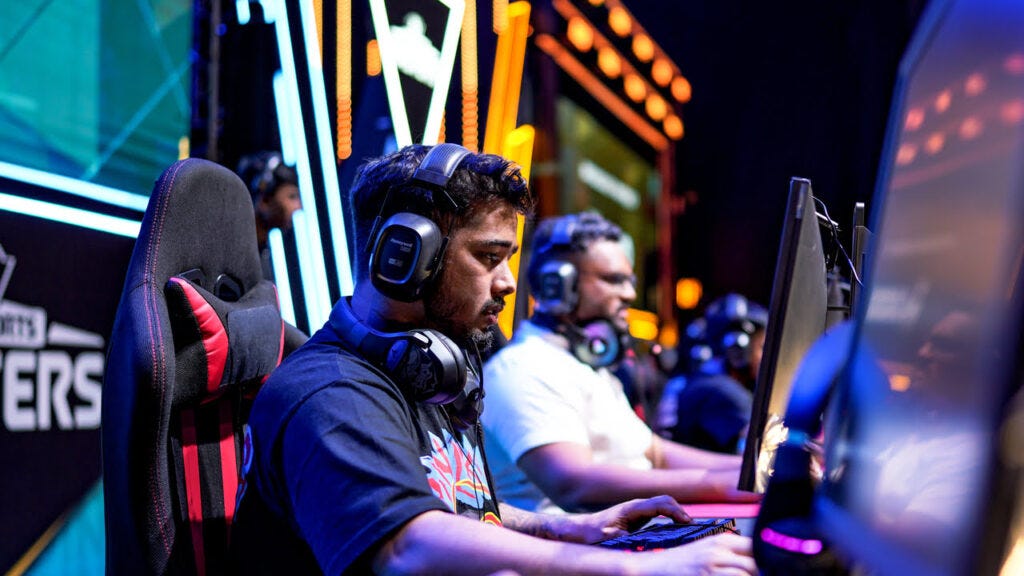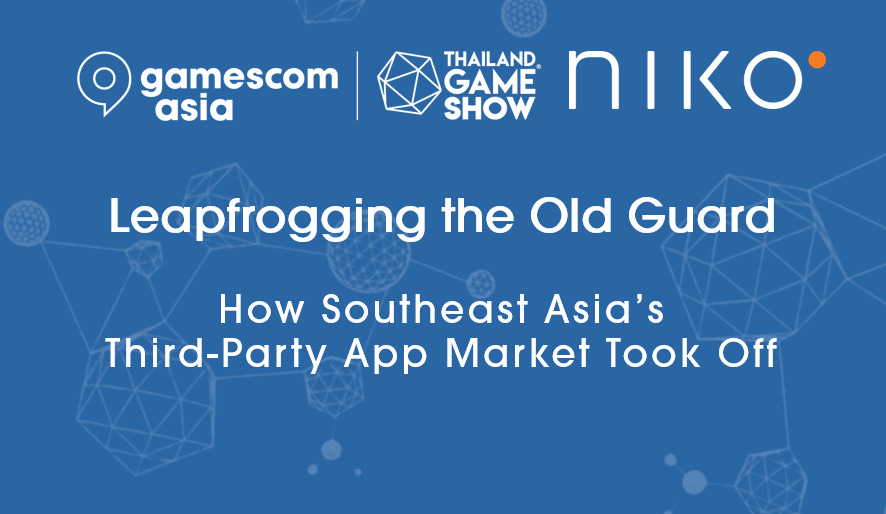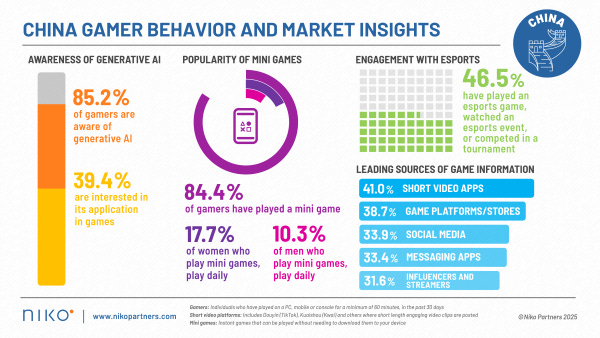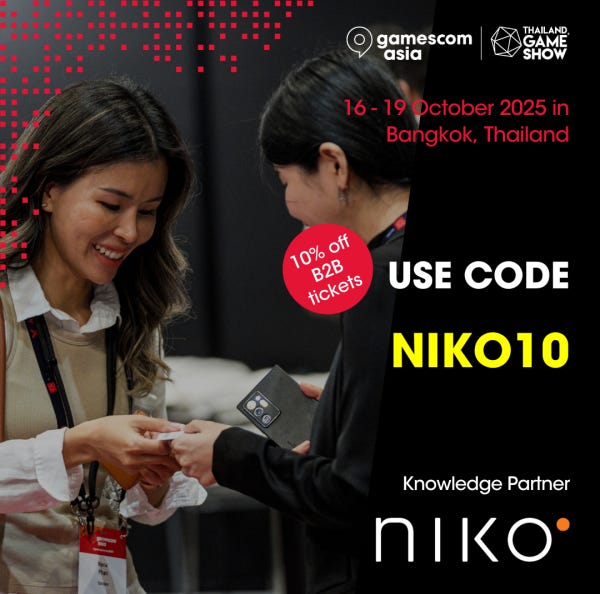India's government opens consultation on Draft Online Gaming Rules for esports, social games
India’s Ministry of Electronics and Information Technology (MeitY) has opened consultation until October 31st on the Draft of the Promotion and Regulation of Online Gaming Rules, 2025. The draft establishes the Online Gaming Authority of India under MeitY who will regulate the space. The authority will be responsible for approving esports and online social games that can legally operate in the country, and for cancelling or suspending registrations found to be in violation of the Act.
Why this matters: MeitY is being granted these powers to build on the Promotion and Regulation of Online Gaming Act, 2025 which banned Real Money Games in favor of esports and online social games. The draft proposes that esports be recognized and promoted under the supervision of the Ministry of Youth Affairs and Sports, while the Ministry of Information and Broadcasting will oversee online social games. Please refer to the recent Niko Partners blog post on the Online Gaming Act 2025 and its impact on the video game industry here.
Leapfrogging the Old Guard: How Southeast Asia’s Third-Party App Market Took Off – Niko Knowledge Brief gamescom asia x Thailand Game Show 2025 Edition
Southeast Asia’s mobile-first culture has reshaped how people play, pay, and connect. This paves the way for digital wallets and third-party app stores to thrive in the region. Our research found that the out-of-app monetization is on the rise in this one fastest-growing video games market in the world.
As the Knowledge Partner of Thailand Game Show 2025, we bring you a special Knowledge Brief to explore the evolving landscape of third-party app stores in Southeast Asia and the latest regulatory developments around it.
How to unlock global growth through smart monetization? Panel discussion at gamescom asia 2025 x Thailand Game Show
Discover strategies to enhance global game profitability through effective monetization at the gamescom asia x Thailand Game Show 2025 panel discussion. “Breaking Barriers: Expanding Global Game Profit Through Innovative Partnerships.” features Zac Liew (Coda), Berkley Egenes (Xsolla), and Chloe Cave (Neon), and moderated by Darang Candra, Niko Partners Director for East Asia and Southeast Asia Research. The session will take place on Friday, October 17 at 1:20 p.m. at the Expo Stage, Queen Sirikit National Convention Center, Bangkok. Use code NIKO10 to enjoy 10% off tickets.
Assassin’s Creed Mirage new expansion is set in and backed by Saudi Arabia
Ubisoft has announced Valley of Memory, a major free story expansion for Assassin’s Creed Mirage, set to release on November 18 to coincide with the game’s second anniversary. The DLC adds roughly six hours of new story and gameplay content, expanding protagonist Basim’s arc and introducing a new open desert region inspired by Saudi Arabia’s AlUla Valley, a UNESCO World Heritage site known for its ancient rock formations and archaeological significance. The game was originally set in Baghdad during the 9th century and the Islamic Golden Age.
Why this matters: Valley of Memory serves both as a content refresh and a symbolic gesture towards the largest video game market in MENA. Mainstream media outlets previously reported that the expansion was developed as part of a broader collaboration between Ubisoft and Saudi Arabia’s Public Investment Fund (PIF), though Ubisoft has declined to officially comment. The partnership would align with PIF’s ongoing strategy to position Saudi Arabia as a global gaming and esports hub through investments in the games industry, including its recent buyout of EA.
Destiny: Rising surpasses $10 million in first month
Destiny: Rising, the F2P mobile MMORPG based on Bungie’s Destiny IP, launched globally on August 28, 2025, as the franchise’s first major mobile extension. Developed and published by NetEase in partnership with Bungie, the title surpassed 10 million pre-registrations and has grossed more than $10 million within its first month on iOS and Google Play (excluding China). Revenue in the first week alone reached $5 million.
Why this matters: The United States has been the primary driver of monetization, contributing $6.8 million, or 66% of total global spending to date, reflecting the IPs existing dominance in North America. While early revenues highlight initial demand in the West, it’s unlikely that the game is currently exceeding expectations set by Bungie and NetEase. This is despite the game being received well by players. The game is still undergoing large-scale testing in China following regulatory approval in May 2025, with a domestic launch expected soon.
Kakao Games secures $111m through sale of subsidy
Kakao Games has raised approximately 156.2 billion won ($113 million) through a combination of asset divestment and new share issuance. Kakao Games will sell its entire stake in its screen golf subsidiary Kakao VX to IVG, a unit of Kakao Investment. In addition, Kakao Games will raise 108.5 billion won ($78 million) through a third-party paid-in capital increase by issuing 6.92 million new shares at 15,680 won ($11.30) per share.
Why this matters: The combined proceeds will be used to fund new business growth, reduce debt, and accelerate Kakao’s expansion into PC online and console gaming, particularly in AAA development. This move underscores Kakao Games’ strategic shift from mobile-heavy operations to a more diversified portfolio targeting premium and global audiences. Late last year, Kakao signed a global publishing deal with Lionheart Studio for Project Q, a new triple-A MMORPG inspired by Norse mythology. The Unreal Engine 5-powered title is scheduled to launch on mobile and PC this year with cross-play support.
NetEase Pay Gift Cards will be available at Japan’s 7-Eleven stores
Starting on October 6, 2025, NetEase Pay Gift Card, a smartphone prepaid card that can be used to purchase items for popular games developed by NetEase, will be available at 7-Eleven stores across Japan. In order to promote the card, which amount ranges from JPY 500 to JPY 50,000 ($3.3 to $330), a special campaign is in place where 5% of the purchase amount will be added to the charge amount.
Why this matters: Several of NetEase-published games such as Knives Out and Identity V continue to be popular in Japan. As gift cards and convenience store culture are still a big part of Japanese gamers’ life, this addition is expected to drive more sales for NetEase in the country. Fun side note: Lisa visited a 7-Eleven in Tokyo during Tokyo Game Show and it is very different from a 7-Eleven in the USA! Noticed the game cards on display, among all the tasty snacks.
Link to original article (Japanese) →
Ubisoft and Tencent’s new subsidiary begins operations this month
Ubisoft has officially named its new Tencent backed subsidiary Vantage Studios, a creative unit tasked with overseeing development of the publisher’s three core franchises: Assassin’s Creed, Far Cry, and Rainbow Six. The studio will draw talent from multiple Ubisoft locations, including Montreal, Quebec, Sherbrooke, Saguenay, Barcelona, and Sofia, totaling around 2,300 employees. The announcement follows Tencent’s 1.16 billion euro investment in March 2025 to acquire a 25% stake in the new subsidiary, which holds licensing and proprietary development rights for Ubisoft’s blockbuster IPs.
Why this matters: While Ubisoft retains ultimate ownership of the franchises, Vantage Studios assumes full development risk, with Ubisoft earning royalties tied to revenue performance. This structure is designed to accelerate production and diversify content formats, ranging from narrative-driven solo experiences to live-service expansions with multiplayer features and regular content drops. Tencent already holds a 10% direct stake in Ubisoft and a 49.9% stake in Guillemot Brothers Ltd., giving Tencent and the Guillemots combined control of 25.4% of Ubisoft’s equity and 29.6% of voting rights.
Niko Partners delivers the most detailed, in-depth analysis and insights into the Asia, Middle East, and North Africa video games and esports markets. Our local feet on the ground produce a comprehensive set of market report series with Niko’s proprietary data and insights. The 2025 China Gamer Behavior and Market Insights Reports is available now.
Tencent looks to dismiss Sony IP infringement case
Tencent has formally filed a motion to dismiss a lawsuit brought against it by Sony Interactive Entertainment (SIE), which alleges that Tencent’s upcoming title Light of Motiram infringes upon the intellectual property of the Horizon series. The legal dispute centers on claims that Tencent appropriated the tone, aesthetic, and thematic elements of Horizon Zero Dawn and Horizon Forbidden West, which includes a red-haired female protagonist, post-apocalyptic settings, tribal-futuristic worldbuilding, and mechanical wildlife.
Why this matters: In its motion to dismiss, Tencent describes Sony’s claim as “an improper attempt to fence off a well-trodden corner of popular culture,” arguing that Light of Motiram draws from broader genre conventions rather than protected IP elements. Prior to the filing, Tencent made substantial changes to Light of Motiram‘s public-facing materials on Steam. If Sony’s claim proceeds, it could set a precedent for how genre-defining elements are treated in IP law.
Goose Goose Duck starts closed test in China with large streamer backing
Canadian developer Gaggle Studios has launched a 100,000-user closed test for Goose Goose Duck (GGD) on Android in China as of September 28, 2025. The social deduction game, which debuted on PC in 2021, surged in early 2023 when Chinese streamers popularized it, pushing the title to a peak of 700,000 concurrent players on Steam. Although its visibility declined sharply by 2024, GGD has retained strong brand recognition. Kingsoft secured a license for the game in June 2025.
Why this matters: The upcoming launch will be a test for whether the game, which was previously popular via an unlicensed version on Steam, can regain popularity through an official release. To re-engage legacy fans, the game is leveraging well-known streamer Da Sima, who was instrumental in the PC title’s viral success and is now returning to lead a team and host a variety program based on the game. In parallel, GGD has struck a partnership with China’s top Werewolf tournament, the Beijing Masters, to co-develop competitive formats and crossover events aimed at uniting broader social deduction game communities.
miHoYo wins case against game boosting cheat service
Shanghai courts have ruled in favor of MiHoYo in a legal dispute against Yumo, a game boosting service that provided cheating and hacking software for Genshin Impact. Yumo has been ordered to pay RMB 3 million ($420,000) in damages and issue a public apology. The court classified cheat-assisted game boosting as a form of unfair competition, marking the first legal precedent in China to do so. Yumo reportedly made RMB 7 million ($980,000) from more than 7.6 million boosting orders. Its listings have since been removed from online marketplaces.
Why this matters: While game boosting, which is where players of a game pays another professional player to level up their game account quickly, is fairly common in China, the addition of cheat software to support game boosting is more fringe and has operated in a legal gray area. MiHoYo’s victory follows Tencent’s 2023 legal success against a boosting service, where a Jiangsu high court similarly ruled such practices constituted unfair competition. Together, these cases reflect a growing judicial and regulatory shift toward cracking down on the game boosting industry as a whole.
Link to original article (Chinese) →
Events
gamescom asia x Thailand Game Show
Bangkok, Thailand
October 16-19, 2025
Speaker: Darang Candra
GamesBeat NEXT
San Francisco, USA
November 12-13, 2025
Attendee: Lisa Hanson
Use GBN25LHAN for 25% off ticket






